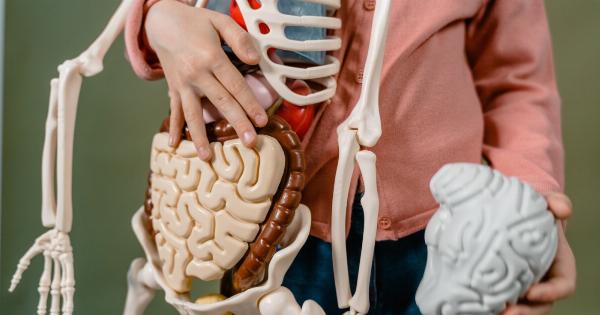Menopause is a part of every woman’s life and is a natural process that marks the end of a woman’s reproductive years.
Menopause typically occurs when a woman reaches her 40s or 50s, and is characterized by the cessation of menstrual periods. However, some women may experience early menopause, which can have a significant impact on their fertility.
Understanding Early Menopause
Early menopause occurs when a woman’s periods stop before the age of 40. This can occur due to a variety of reasons, including autoimmune disorders, genetics, chemotherapy and radiation therapy, and surgeries such as hysterectomy and oophorectomy.
Early menopause can lead to a range of health problems, including decreased bone density, increased risk of cardiovascular disease, and infertility.
Infertility and Early Menopause
One of the most devastating consequences of early menopause is infertility.
Women who experience early menopause may have difficulty getting pregnant due to the depletion of their ovarian reserve, which refers to the number of eggs a woman has in her ovaries. Once the ovarian reserve is depleted, a woman’s chances of getting pregnant naturally decrease significantly. While there are alternative methods such as IVF and egg donation, not every woman is suitable for or can afford these treatments.
Stem Cell Treatment for Restoring Fertility
Stem cells are unique cells in the body that have the ability to develop into various types of tissues and cells.
In recent years, stem cell research has advanced significantly, and scientists have discovered the potential of stem cells in treating a range of diseases and conditions, including infertility caused by early menopause. Stem cell therapy for restoring fertility involves the use of stem cells to stimulate the production of new eggs in the ovaries, effectively reversing the effects of early menopause.
How Stem Cells Work
Stem cells have the ability to differentiate into different types of cells in the body, including eggs. In the case of stem cell therapy for restoring fertility, stem cells are injected into the ovaries, where they stimulate the production of new eggs.
The stem cells can be sourced from a variety of locations, including bone marrow, adipose tissue, and even the ovaries themselves. Once the stem cells are injected into the ovaries, they begin to differentiate into eggs, effectively creating new oocytes and reversing the effects of early menopause.
Benefits of Stem Cell Treatment for Restoring Fertility
There are several benefits of stem cell treatment for restoring fertility, including:.
- Ability to produce new eggs
- Increased chance of natural conception
- Avoidance of invasive and expensive IVF and egg donation procedures
- Reversal of the effects of early menopause
Current State of Stem Cell Therapy for Restoring Fertility
While stem cell therapy for restoring fertility is still in its early stages, there have been several successful cases of women who have undergone the procedure and have been able to conceive naturally.
However, there are still several challenges that need to be addressed before stem cell therapy for restoring fertility can become widely available, including:.
- Safety concerns: As with any new medical procedure, safety is a major concern. Studies are currently underway to determine the safety of stem cell therapy for restoring fertility.
- Ethical concerns: There are ethical concerns surrounding the use of embryonic stem cells in stem cell therapy for restoring fertility. However, researchers are exploring alternative sources of stem cells that do not present ethical concerns.
- Cost: The cost of stem cell therapy for restoring fertility is currently high, and may not be accessible for many women.
Conclusion
Early menopause can have a significant impact on a woman’s fertility, but advances in stem cell therapy show promise in restoring fertility by stimulating the production of new eggs.
While there are still several challenges that need to be addressed before stem cell therapy for restoring fertility can become widely available, the potential benefits are significant, providing hope for women who experience early menopause and infertility.





























